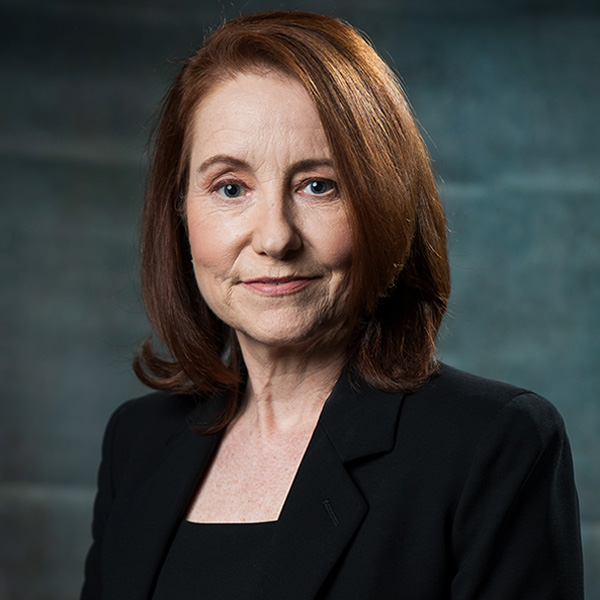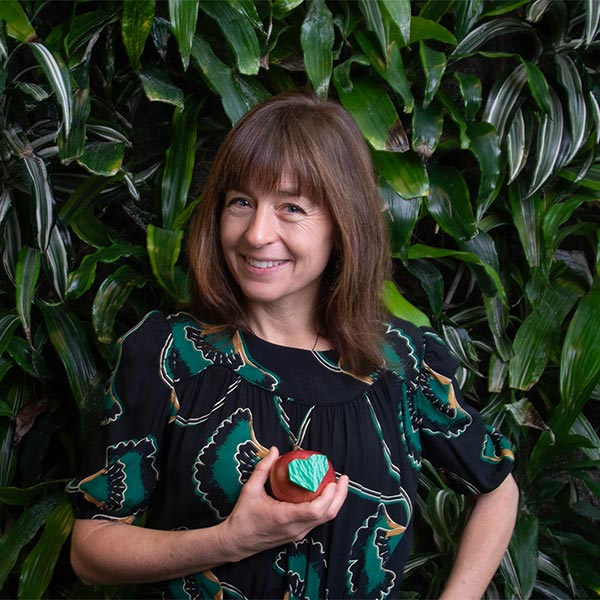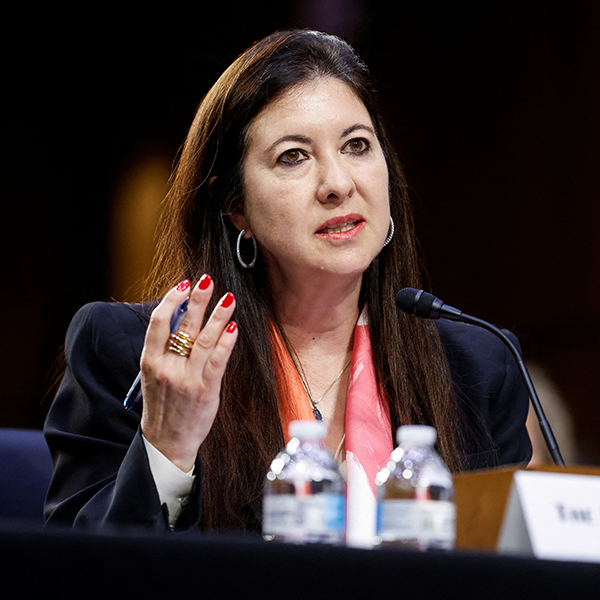Natalie Voland, BA’95, BSW’99, is just stepping out of a busy lunch on a crisp late autumn day in Montreal, surveying her domain. Voland’s real estate company, Gestion Immobilière Quo Vadis, is in “heavy acquisition mode” and why not: its 1.5 million square feet of property holdings are fully occupied.
“One hundred per cent,” she says, and even in a booming office rental market, with occupancy rates above 80 per cent, you can’t do better than 100. The secret is simple: “I fill my buildings by listening to my tenants.”
It might read like boilerplate, but Voland means business. Take the recent redevelopment of Saint-Joseph de la Petite-Bourgogne, a Sulpician church built in 1861 in Little Burgundy that had fallen on hard times.
When Voland came across it, she recognized the property was a) gorgeous and b) integral to its community. So although she knew nothing about churches, her team and an initiative called Je Fais Mtl redeveloped it as a co-working and community event space. Which is fancy bizspeak for hipper than your typical office.
Le Salon 1861 includes an “entrepreneurial social hub” encouraging cross-pollination between businesses, community groups and local citizens, a full-service event hall and a restaurant sourcing local produce.
Similarly, Complexe Dompark was bought in 1995 as a bankruptcy repossession of a textile factory and is now an ubergroovy rental property on the Lachine Canal, re-energizing and making viable a neglected area. Commercial lofts share the building with restaurants, an event hall and an art gallery.
That holistic approach is key to Quo Vadis. The company is part of a philosophical tectonic shift in real estate, a “mission-based developer” insisting on the interconnectedness of business and society.
Celebrating their 25th anniversary, her operation focuses on residential development, project management, design, construction and leasing to small- and medium-sized enterprises (SMEs), mainly in southwest Montreal, with more than 500 small and medium businesses in the portfolio.
Profit is clearly a goal, but retrofitting historically relevant buildings into entrepreneurial ecosystems bespeaks something beyond just filthy lucre. Or as Voland says, “How can your business model do good while making market return?”
It is a mindset sparked by adversity. Born in Germany, her family moved to Canada in 1976. At 18, Voland was struck, almost fatally, by a drunk driver. The details are frankly horrifying.
“My heart stopped three times due to too much blood loss,” she remembers. After being “patched up and sent home,” she started physio “with an amazing therapist who never gave up on me.” Five days of grinding misery a week, crutches, leg braces, canes, later surgeries and a limp – “I fought my way back for 11 years.”
The experience had a profound impact. “I was told I could never walk and worked super hard to prove it wrong,” says Voland. “In business, if I am doing something for the right reasons, I fight through the pain and keep going where maybe others would give up. It’s taught me to fight for what’s important and don’t sweat the little things.”
A talented dancer before the accident, any thoughts of a future in ballet were now out of the question. She turned her attentions elsewhere.
Voland has two McGill degrees. Neither one is in architecture, urban planning or business: one is a BA in political science, the other is a social work degree. Though Quo Vadis was her father’s company, following in his real estate footsteps was initially the last thing on her mind.
“Actually, I had thought many times about why I didn’t want to do it,” she laughs. “The whole thing seemed diametrically opposed to my core values.”
But, once again, life intervened with her plans. Her father fell ill and Voland took on responsibility for the family business. “I wanted the opportunity to help him. I said yes for an initial one-year period.” Twenty-three years later, she is still hard at work.
When she took on the job, she had firm ideas on the business practices she would steer away from.
“The real estate business forgot humans are not a commodity,” she says. “Building for 10 years instead of generations, and not telling the client. Throwing up garbage buildings that don’t last.” Voland sees her role very differently. “I use buildings to build communities.”
Le Salon 1861 partners as a “living laboratory” for research with the Quartier de l’innovation, a Montreal-focused innovation ecosystem (McGill is one of the founding partners). Quo Vadis is a Certified B Corporation, a business that balances purpose and profit, legally required to consider the impact of decisions on workers, customers, suppliers, community and the environment.
Her approach has not gone unrecognized. Earlier this year, the Women’s Y Foundation of Montreal named her one of its 2018 Women of Distinction, in the business and entrepreneurship category.
Voland draws inspiration from a European model of cities, which is more collaborative and human, whereas in North America “cities were designed to help Henry Ford sell more cars. The collaborative version is the real definition of a sustainable city.”
She envisages “a walkable city where all economic groups find opportunities to have gainful creative employment. Where universities, small and large companies and government work collaboratively to solve common problems with design thinking.”


